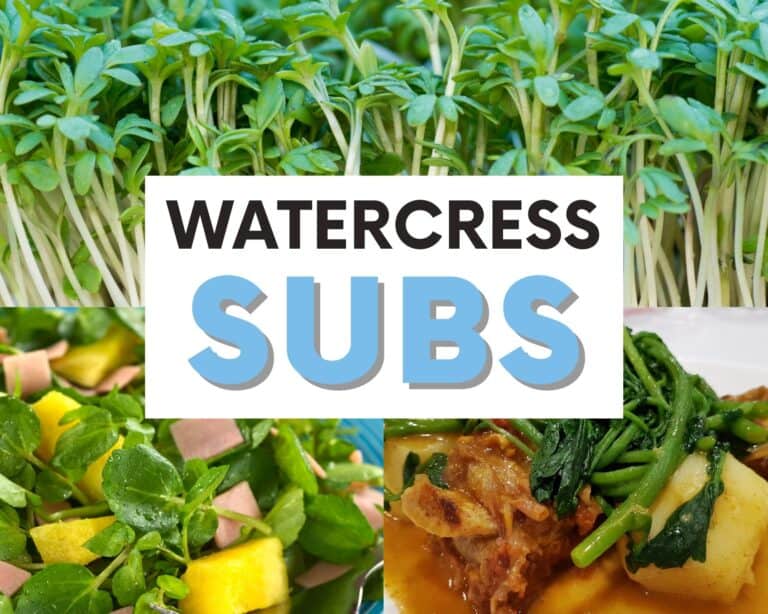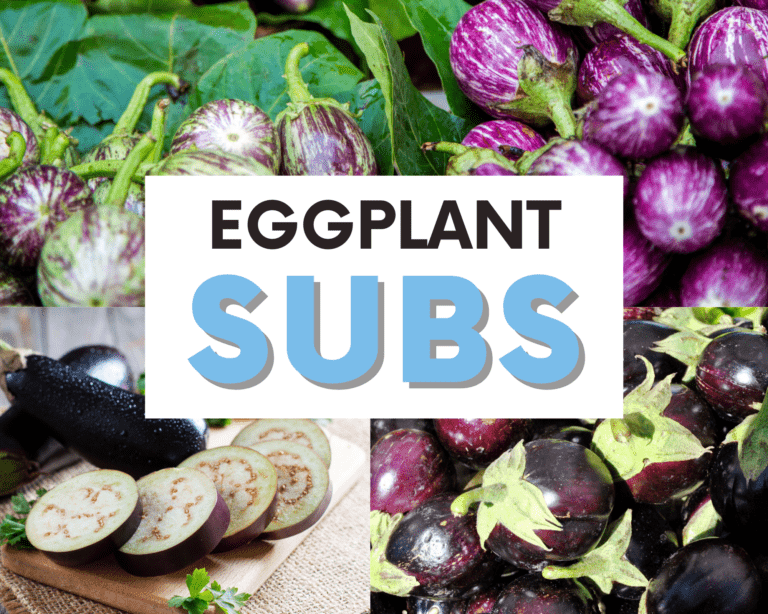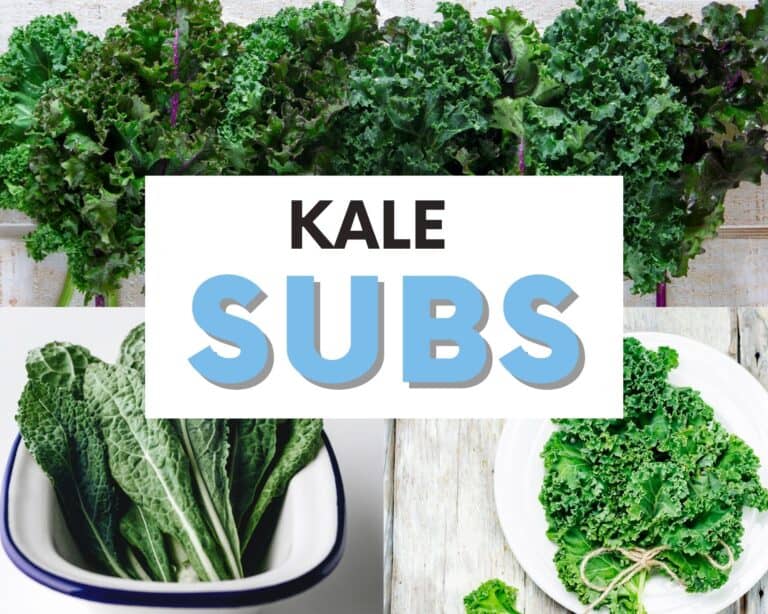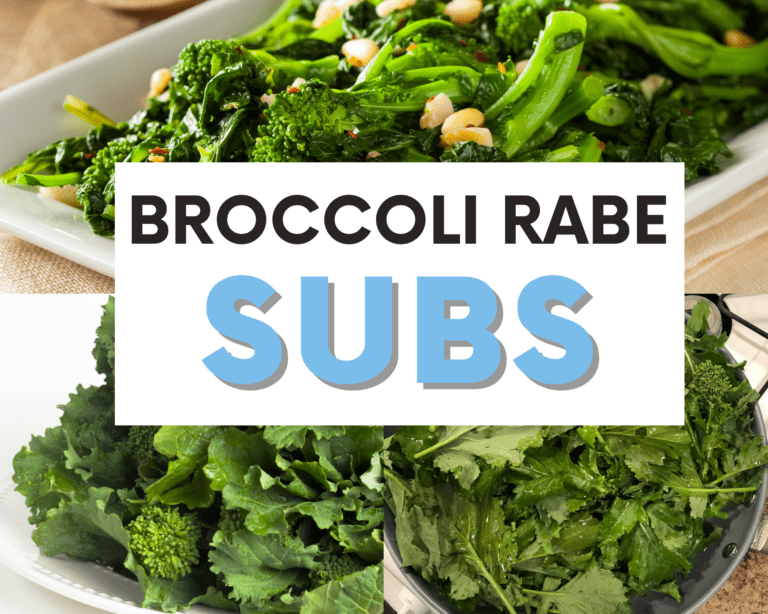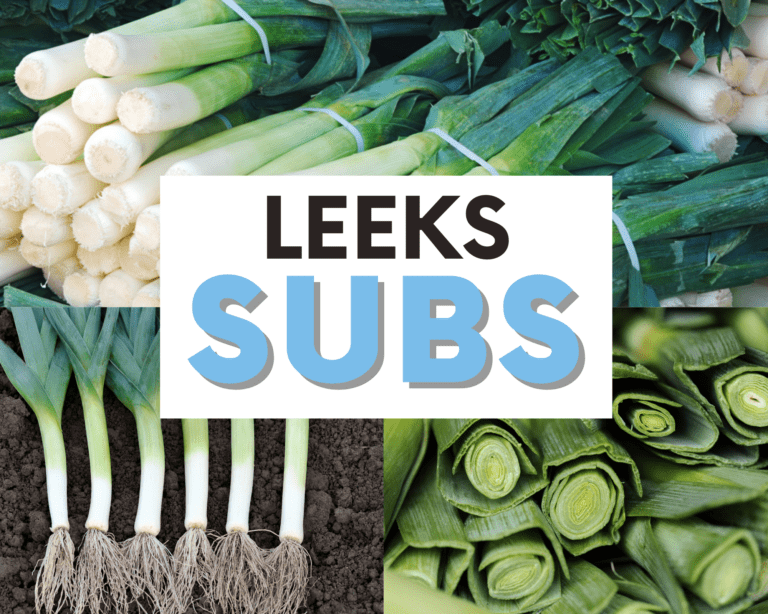The BEST Water Chestnut Substitutes You Have To Try
This post may contain affiliate links. Please see my disclosure policy for details.
Looking for a delicious, crunchy alternative to water chestnuts in your recipes? Or perhaps you can’t find fresh water chestnuts at the grocery store or local Asian market? Today we are going to go over the best water chestnut substitutes so you can keep cooking up your favorite dishes like a boss.
From crunchy jicama to savory sunchokes, there are plenty of tasty options to choose from. Keep reading to discover some of the best substitutes for water chestnuts!
But before we dive in. I find it helpful to understand the characteristics of water chestnuts so we can find the perfect replacement.
What Are Water Chestnuts, And What Do They Taste Like?
Water chestnuts are white, edible roots from an aquatic plant called Eleocharis dulcis. The plants can grow up to one meter tall with long, bright green leaves, and the white water chestnut roots can be seen poking out of the soil underwater. This is why it has the word water in its name and is not to be confused with chestnuts that grow on trees.
Water chestnuts have a unique taste that is often difficult to put into words. They have a crunchy texture but a slightly sweet flavor, similar to an apple, and the texture is almost like an Asian pear.
Many people describe them as having an almost nutty aftertaste, accompanied by a subtle tanginess. I love them in a stir fry as they bring a fresh, crisp crunch. In addition to their delicate taste, water chestnuts provide a wealth of nutrients such as vitamin B6, potassium, and fiber. So, whether cooked or eaten raw, water chestnuts offer an interesting flavor and delicious crunch to what you are cooking.
Key Characteristics of Water Chestnuts
When looking for the perfect alternative, we need to look for these characteristics in our substitute.
- Crisp Texture
- Slightly Sweet
- Tangy
- It can be used cooked or raw
Seems pretty simple, right? And you are right. There are several things we can use as a swap.
The BEST Water Chestnut Substitutes
Each one of these alternatives can be used as a one-to-one ratio. No need for any weird calculations!
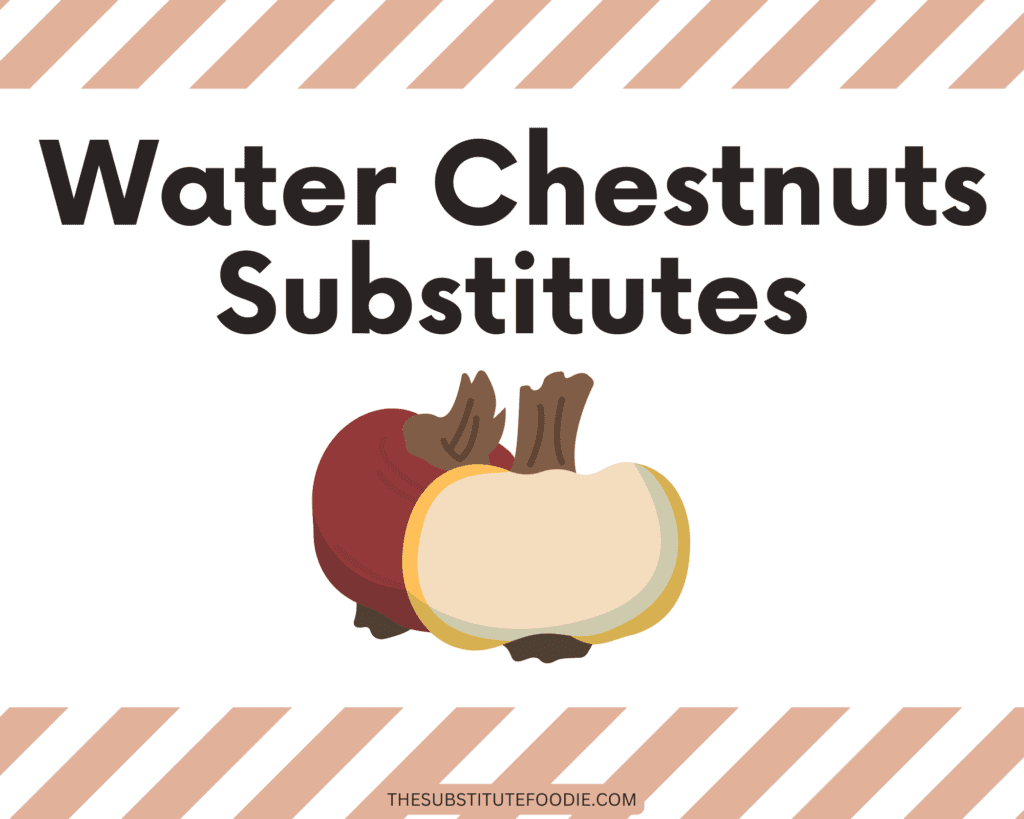
Canned Water Chestnuts
If you are not able to find fresh water chestnuts at your local Asian market, then give canned water chestnuts a try! You can find them at most grocery stores. Because these are canned, the flavor and texture are not as bright and crisp as fresh. But it will be the closest to the fresh version.
If you happen to use recipes that utilize water chestnuts a lot. It might be a good idea to stash some cans in the pantry. I love having things on hand when I get inspired to try a new recipe or one of my favorites.
Jicama
Jicama has that crisp, bright flavor you are looking for. It is a root vegetable that is similar in appearance to a potato, but the flavor and crunch are much different. This substitute is perfect for salads or stir-fries because it holds its shape and texture as water chestnuts would.
Lotus Root
Lotus root, known scientifically as Nelumbo nucifera, is an aquatic plant found in the clean, shallow waters of lakes and ponds throughout Asia. This root vegetable can be served boiled, fried, or even eaten raw. It has a crunchy texture that some consider being between bamboo shoots and chestnuts with a slightly sweet taste. Making it a great water chestnut replacement.
Nutritionally speaking, lotus root is low in calories but high in essential vitamins and minerals such as vitamin C and potassium. It’s also rich in fibers which helps with digestion and provides energy-boosting carbohydrates.
Sunchokes or Jerusalem Artichoke
Sunchokes, also known as Jerusalem Artichoke, is a flowering perennial plant native to North America. It belongs to the sunflower family and has edible tuberous roots resembling small potatoes.
Sunchokes have an earthy taste and can be used in many types of cuisine. In salads, they add crunchiness and sweetness, while roasting brings out their nutty flavor. Sunchokes offer a wide range of health benefits, such as promoting digestion.
I want to note that for some people, sunchokes can cause digestive disturbances, a.k.a gas, and you may need to run to the bathroom. Keep that in mind when using it and those you serve it to.
Canned Bamboo Shoots
Canned bamboo shoots are the edible shoots of a variety of species in the Bambusa and Phyllostachys genera. They are revered for their unique flavor, texture, and nutritional value.
Canned bamboo shoots taste like a combination of artichoke hearts and asparagus, with a slight flavor of corn, making them a fun swap. A great thing about canned bamboo shoots is that they are very low in calories and fat but high in dietary fiber. Bamboo shoots can be used in a variety of dishes, such as stir-fries, salads, and soups.
Some Other Water Chestnut Alternatives
The 5 I mentioned above are what I consider the best replacement for water chestnuts. But some honorable mentions could work if you are in a bind. But it depends on the recipe and application. Please keep that in mind.
Celery
Celery might seem like an odd option, but it can provide that crisp crunch you are looking for, especially in stir-fries. Remember not to overcook it, as celery becomes soft and mushy when cooked for a long time.
Daikon Radish
Daikon radishes are a type of winter radish with a crunchy texture, much like water chestnuts. It has a slightly peppery flavor that goes well in salads or soups. Just remember, it will slightly alter the dish’s flavor, but it will give you that crisp fresh flavor.
Turnip
A turnip is also an option if you are looking for a crunchy texture in your dish. Just remember that turnips will change in texture and taste once cooked.
My Final Thoughts on Substitutes for Water Chestnuts
Water chestnuts are a delicious and nutritious veggie, but if you can’t access them or find them fresh, these substitutes will come in handy. Remember that depending on the dish and application, the flavor and texture may differ slightly. But stick to the top 5 of canned water chestnuts, jicama, bamboo shoots, lotus root, and sunchokes. I mention first for the closest match. Happy cooking!

